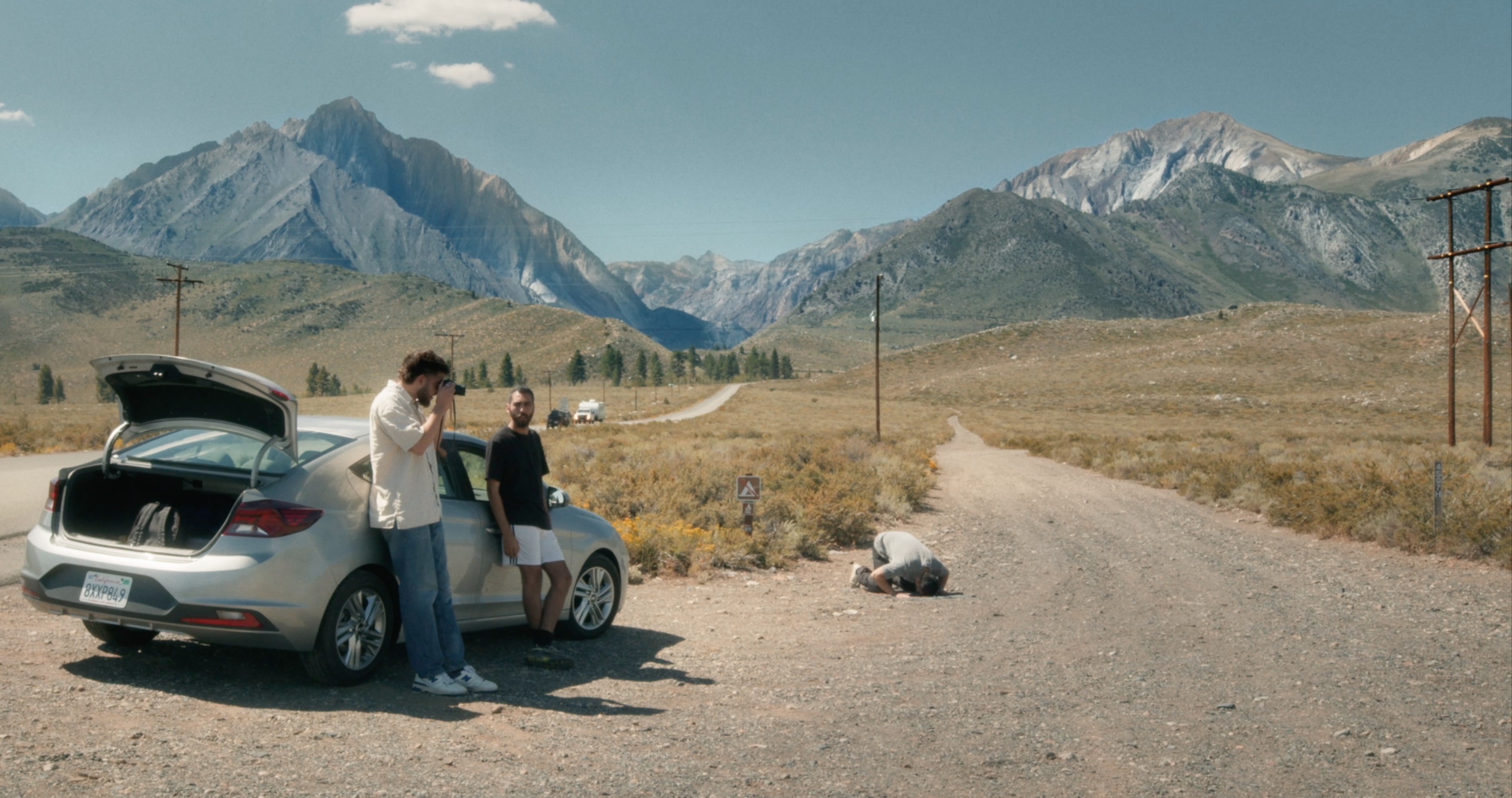
Jabal (2023)
Origin: Palestine | Fiction | Director: Zayd Lahham, Kareem Abuali | 20 minutes
Introduction by John Vogel
Written and filmed under incredible time constraints, and with a minimal crew, Jabal is a delicate and compelling meditation on physical displacement and longings for homeland. Set against an often ambiguous backdrop, three friends drive in search of Jabal, a hidden community of Palestinians who relocated to the mountains. Static, jarring expositions of an expansive, pine-covered landscape, are set against meandering framings of the group as they drive, discussing their journey, heritage, and expectations for Jabal. Between the three friends, fragments of collective memory and culture are explored but never completely told frequently conversations trail off failing to connect the lines of cultural references, religion, and history that motivate their journey. When they finally reach their destination, their romantic illusions of a physical connection to homeland are complicated by what greets them.
Director’s Statement & Bio
After studying the works of Abbas Kiarostami and Elia Suleiman, Kareem, Saleh, and I set out to produce an authentic reflection of the exilic experience—particularly that of Palestinians and Arabs. "Jabal" is an independently-produced film that proudly embraces its production limitations as stylistic enhancements. We explored the intersection of diaspora and delusion through an accented lens grounded in the relationship between humans and the environment. Written and shot in 2022, we hope its role in the current context is to platform important conversations regarding resistance and liberation within the waves of hope and loss.
Zayd Lahham is a 22-year-old Syrian-Jordanian filmmaker. He studied Business of Cinematic Arts and Middle East Studies at the University of Southern California. His debut short film "Jabal" is slated to premiere at Chicago Palestine Film Festival and IndieLisboa. He is interested in interrogating diasporic nostalgia, the contemporary Arab identity, and the malleability of the Arabic language.
(text from website Palestine Museum)
View trailer